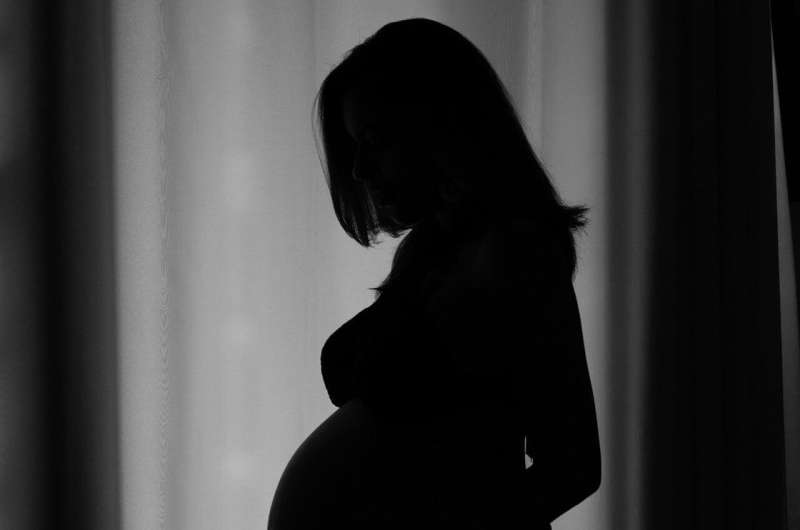
Credit: Pixabay/CC0 Public Domain
A recent study conducted at the University of Turku in Finland showed that hyperemesis gravidarum, a severe form of nausea that occurs during pregnancy, is linked to depression. Women who experienced severe nausea were more likely to have depression both before and after pregnancy and were more likely to receive an earlier diagnosis of depression after pregnancy.
Hyperemesis gravidarum is associated with severe nausea and vomiting during pregnancy that prevent a person from eating and drinking normally and make everyday life extremely difficult. It occurs in 0.3 to 3.6% of all pregnancies and is the most common cause of hospitalization in the first trimester of pregnancy.
In addition to the physical effects, severe nausea in pregnancy carries a considerable psychosocial burden. However, information on its association with psychiatric illness has been limited so far.
Researchers at the University of Turku conducted a Finnish nationwide register-based study that found an association between severe nausea during pregnancy and depression. This is the first time this association has been identified, and it was also found to be bidirectional, meaning that severe nausea during pregnancy is associated with depression both before and after the pregnancy.
The study was part of a larger LopuJo study led by Professor Päivi Polo. The article was published in The Lancet Psychiatry.
The study analyzed register data from more than 437,000 Finnish women from 2004 to 2017. The results show that 8.8% of women with severe nausea during pregnancy had depression before pregnancy, compared to 1.0% in the control group. This means that these women were more than five times as likely to experience depression before pregnancy.
In addition, they were also about 3.5 times more likely to develop new, previously undiagnosed depression after childbirth: 4.9% were diagnosed with a new-onset depression after childbirth, compared to 1.0% in the control group.
After giving birth, depression was also diagnosed earlier in women who had suffered from severe nausea during pregnancy compared to others. On average, depression was diagnosed 3.3 years after delivery in women with severe nausea during pregnancy, compared with an average of 4.5 years after delivery in their controls.
The study suggests that severe nausea during pregnancy and depression may have shared biological mechanisms. The findings highlight the importance of systematic psychiatric screening during and after pregnancy, and the need for a multidisciplinary approach to care.
“Our research shows that severe nausea in pregnancy is not only a physically stressful condition, but also a significant mental health risk factor. The results emphasize the need for improved collaboration between psychiatry, gynecology, and primary care. Our aim is also to raise awareness and improve access to support for these patients,” says Doctoral Researcher Eeva Terävä-Utti from the University of Turku.
More information:
Eeva Terävä-Utti et al, Association between hyperemesis gravidarum and depression: a national register-based controlled study in Finland, The Lancet Psychiatry (2025). DOI: 10.1016/s2215-0366(25)00271-8
Provided by
University of Turku
Citation:
Severe nausea during pregnancy and depression: Study reveals bidirectional association (2025, November 15)
retrieved 16 November 2025
from https://medicalxpress.com/news/2025-11-severe-nausea-pregnancy-depression-reveals.html
This document is subject to copyright. Apart from any fair dealing for the purpose of private study or research, no
part may be reproduced without the written permission. The content is provided for information purposes only.
